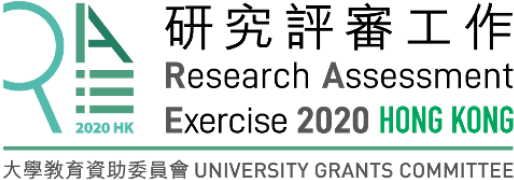Unit of Assessment:
Research categories:
?Economics & Business
Business (2)
Industrial Relations & Labor (1)
Management (1)
Psychiatry/Psychology
Psychology, Applied (1)
Social Sciences, General
Ethics (2)
Funder acknowledgements:
?Faculty Research and Creative Activity Committee of Middle Tennessee State University (1)
Case Study
Pay research influencing reward management decisions and related public policies in Hong Kong
1. Summary of the impact
The Hong Kong Pay Level Survey (the Survey) conducted at HKBU between 1995 and 2018 has directly informed the annual pay adjustment and reward strategy decisions of organisations in Hong Kong, influenced the practice of reward management and contributed to improved effectiveness of organisational practices. In 2018, the Survey covered 171 benchmark jobs and obtained the pay data of 120,745 employees, ranging from operations to management level, from 99 organisations. In addition, researchers have directly contributed to practitioner and public policy debates on rewards and related human resources matters.
2. Underpinning research
The Survey has been conducted annually since 1995, being extended to the Mainland in 1996 and Macao in 2008, under a collaboration between the Hong Kong People Management Association (HKPMA) and the Centre for Human Resources Strategy & Development (CHRSD) of the Hong Kong Baptist University. The Survey is directed by Randy Chiu (Professor & Director of CHRSD, at HKBU since 1993) and Felix Yip (Senior Lecturer & Associate Director of CHRSD, at HKBU since 2011).
The underpinning research comprises the development of the Survey and the substantive analysis. Chiu, Yip and colleagues are responsible for designing the questionnaire. To ensure that it is rigorous and up-to-date, they a) conducted extensive reviews of materials from both academics and practitioners, b) added questions on topical and research issues drawn from their research agenda, and c) worked closely with an advisory committee, composed of senior practitioners and leaders in the Human Resources (HR) sector. Data from rounds of the Survey, along with cumulative datasets, were used to conduct both primary and secondary analysis.
A key aim of the Survey is to accurately track pay-level trends in the real world, providing organisations with data on which to base their annual pay adjustment and reward strategy decisions. In addition, Chiu, Yip and colleagues have used the Survey data in their research projects and have published scientific papers. In their early works (1), (2) and (3), researchers tried to address a foundation research question of whether, and how, pay or monetary incentives enhance or undermine employee and organisational performance. They measured pay equity and calculated companies’ external competitiveness, reporting a strong relationship between education level and pay level. They also found that cash mentality played an important role in retaining and attracting employees in both China and Hong Kong, yet attention to compensation components should not be neglected – for example, mortgage loan and profit sharing are important factors for employees in Hong Kong but in China cash allowance, overtime allowance and individual bonus play a stronger role. These findings helped researchers to improve the survey instruments in the subsequent years.
Further, researchers developed a project (4) to directly address the question of whether money can motivate or corrupt employees. They developed the concept of "the love of money", defined as individuals’ attitudes towards money as a motivator, symbol of success, important aspect of life, and path to wealth, and concluded that "the love of money is the root of evil, but money is not." These research findings helped to further refine the survey instruments to measure various monetary incentives of Hong Kong and China’s firms in finer detail. In their later work (5), they have demonstrated the cross-cultural validity of the concept of "love of money" and its predictive power for antisocial behaviors. These later studies suggest that the Survey can provide valuable information for firms to understand, explain, and predict the consequences of their various monetary incentives.
3. References to the research
Publications arising from the research include both technical papers in peer-reviewed journals aimed at practitioners [items (1), (2) and (5) below] and in international academic journals [items (3) and (4)]. The former attests to the level of practitioner interest, whilst the latter demonstrates the academic quality and significance of the work.
(1) Tang, T., Luk, V., & Chiu, R. (2000). Pay differentials in the People's Republic of China: An examination of internal equity and external competitiveness. Compensation and Benefits Review, 32(3), 43-49.
Google Scholar = 46; SSCI citations = NA; Scopus = NA
(2) Chiu, R., Tang, T., & Luk, V. (2001). Hong Kong and China: The Cash Mentality Revisited. Compensation & Benefits Review, 33 (3), 66-72.
Google Scholar = 75; SSCI citations = NA; Scopus = NA
(3) Chiu, R., Luk, V., & Tang, T. (2002). Retaining and motivating employees: Compensation preference in Hong Kong and China. Personnel Review, 31(4), 402-431.
Google Scholar: 267; SSCI citations = 59; Scopus = 71
(4) Tang, T., & Chiu, R. (2003). Income, Money Ethic, Pay Satisfaction, Commitment, and Unethical Behavior: Is the Love of Money the Root of Evil for Hong Kong Employees? Journal of Business Ethics, 46 (1), 13-30.
Google Scholar: 398; SSCI citations 98; Scopus: 112
(5) Tang, T., Chiu, R., & others. (2018). Monetary Intelligence and Behavioral Economics: The Enron Effect—Love of Money, Corporate Ethical Values, Corruption Perceptions Index (CPI), and Dishonesty Across 31 Geopolitical Entities. Journal of Business Ethics, 148 (4), 919-937.
Google Scholar: 18; SSCI (Web of Science): 9; Scopus: 9
4. Details of the impact
Dissemination and engagement
The main survey findings are accessible to the public on the official website of CHRSD [1] and HKPMA [2], and a comprehensive report, via hard and soft copy, is provided to all subscribers every year. The number of corporate subscribers has varied from 130 to 200 in the RAE period [1]. The main survey findings are also released through an annual press conference which generates both TV and radio news coverage, with around 15 media (online and offline) reporting the story the next day [1]. In addition, public events are organised to address specific employment issues with reference to the survey findings and to promote best reward management practice. These events have featured business leaders, senior government officials and legislators as officiating guests and keynote speakers, including the Chief Secretary for Administration of the HKSAR Government, former Secretary for Education, Chairman of the Equal Opportunity Commission, and Chairman of the Standard Working Hours Committee [1]. These public events are well received by the local businesses and stakeholders as evident by their attendance – in the RAE period there were 8 pubic events with more than 3500 attendants in total [1].
Impact: annual pay adjustment
The impact extends beyond Hong Kong to include employers in the Mainland and Macao, and covers the entire RAE reference period and more. The CHRSD website contains summary tables showing descriptive statistics of all three surveys (Hong Kong, Macao and China), between 2010 and 2018, including, but not limited to, numbers of participating companies, employees affected, industries involved, and benchmark jobs etc. [1]. As indicated by the ever rising number of participating companies, total employees affected and benchmark jobs surveyed [1], the survey has become a widely-recognised reference point in making decisions on annual pay adjustments. This is also evident from the comments of survey subscribers, for example:
"For more than two decades, the HKSAR Pay Level Survey… had earned its reputation as one of the most important and renowned master pieces of Hong Kong" (Chairman, Pay Trend Survey Committee of Standing Commission on Civil Service Salaries and Condition of Service of Hong Kong SAR) [3] and is used "…as a reliable reference for the annual salary review." (Managing Director, Cornerstone International Group) [4]. "It is also great reference for us to forecast pay trend of the coming period…it has been one of the main references to our Group for over 10 years" (Human Resources Director, Tao Heung Group) [5].
Impact: organisational pay and benefits practice
The impact goes beyond informing annual pay adjustments to include helping promote understanding of remuneration concepts amongst practitioners, strengthening compensation and benefit practices, facilitating advocacy of family friendly employment practices, and shaping organisational pay and benefits and wider strategies. This is evident in comments from stakeholders, for example:
"Recent trends in incentive schemes, bonus offers, employee movement trends and profiles are all very useful… to sustain in business operation and made a good impact for… society at large" (Senior Manager, Hospital Authority [6]. "[It] has all long be an important and reliable source of information on pay level and benefits that we rely heavily on… The information contained in the reports are extremely useful and relevant for our purpose… valuable to us for data analytics purposes" (Head of Human Resources and Administration Department, Hong Yip Holdings Ltd.) [7]. "More than just providing pay levels of various positions, the survey’s facilitators are very helpful in designing questions fit our other needs, which so important for us to maintain our remuneration and benefit packages attractive and competitive" (Human Resources Director, Sanfield Building Contractors Ltd.) [8].
Impact: stimulating public policy debate and the development of the HR profession
CHSRD research and its public forums and conferences have informed debates on HR practice and public policy. Examples include the extension of the retirement age (2015), consultations on the cancellation of offsetting severance pay (2016) and establishing standard working hours (2017) [1]. Generally this has involved oral evidence presented at meetings, though in 2015 CHRSD was asked by the Labour Department to provide oral and written evidence on ageing workers and flexible employment [9]. Government officials refer to CHSRD survey reports and consult members of the survey team on policy formation. For example, Chiu has been asked by the Hong Kong Government to serve on the Cross-Industry Training Advisory Committee for the Human Resources Management Sector under the Qualification Framework (2014-2019) [10].
5. Sources to corroborate the impact
[1] Website of the CHRSD
http://chrsd.hkbu.edu.hk/eng/knowledge-sharing/annual-pay-level-survey-reports/index.jsp
[2] Website of the HKPMA
https://www.hkpma.net/pay-level-survey
[3] Testimonial, Mr. Wilfred Wong, Chairman, Pay Trend Survey Committee of Standing Commission on Civil Service Salaries and Condition of Service of Hong Kong SAR
[4] Testimonial, Mr. Fred Kwan, Managing Director, Cornerstone International Group
[5] Testimonial, Ms. Caroline Li, Human Resources Director of Tao Heung Group
[6] Testimonial, Mr. Peter Leung, Senior Manager, Hospital Authority
[7] Testimonial, Dr. Aaron Chiang, Head of Human Resources and Administration Department, Hong Yip Holdings Ltd.
[8] Testimonial, Mr. Pele Lai, Human Resources Director, Sanfield Building Contractors Ltd.
[9] Chiu, R. (2015) Myths and Benefits of Retaining Mature Employees in 2020: Making Use of Flexible Employment Mode in Age Smart Management, Applied Research Series, Centre for Human Resources Strategy & Development
[10] Press Release and Re-appointment of Cross-ITAC

